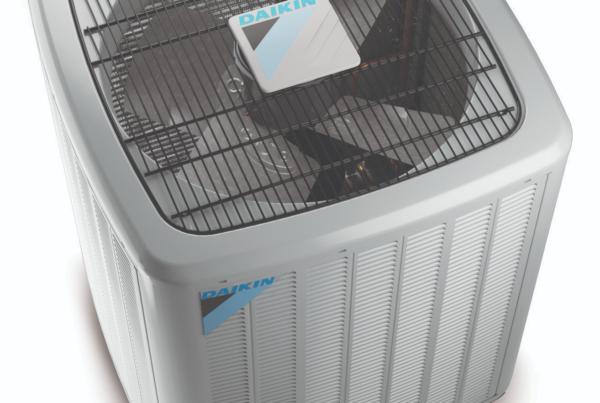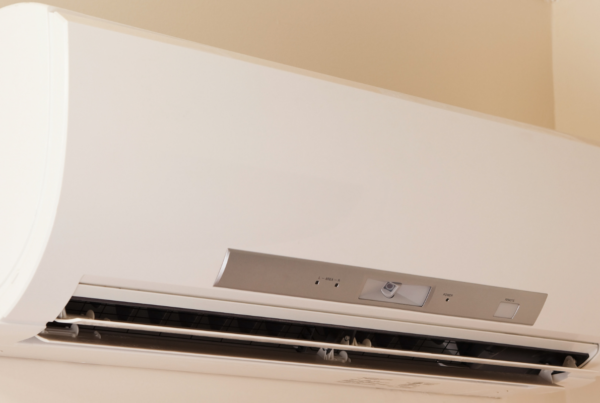Protecting Your AC System from Salt Water
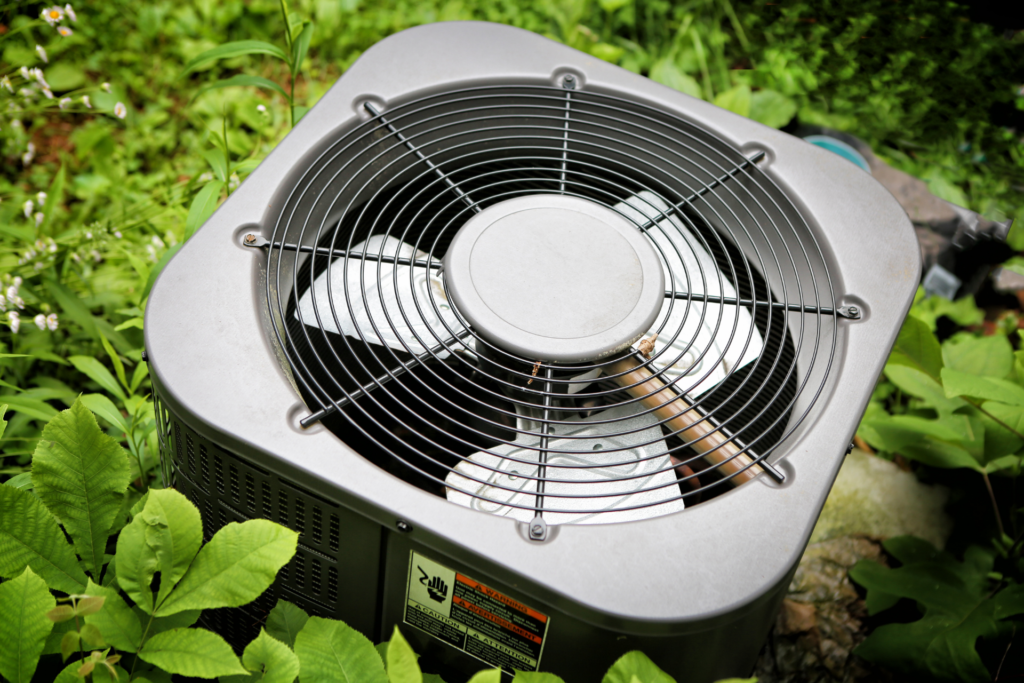
As most Floridians know, salty sea air is a big problem for the daily wear-and-tear of items that stay outside most of the year. Your car, your electronics, your garden, and even your favorite grill are all things that will break down, corrode, or degrade over time with prolonged exposure to salty air. The outside components of your HVAC system are no different. The outside part of your AC system is called the condenser, and it contains the fan, the compressor, and other critical parts of your cooling system. Maintaining these parts means having a more efficient and longer-lasting unit. But what happens when salt water in the humid Florida air starts eating away at the metal components of your condenser? The short answer – corrosion.
How Do I Protect My Air Conditioner from Salt Air?
Air conditioners are expensive pieces of equipment, and maintaining the system is important for protecting your investment. In Florida, there’s no avoiding the salty air – and everyone needs an air conditioner – so you may be asking a common HVAC question: what can I do to protect my air conditioner from salt air? There a few things that homeowners can do to protect their systems! You can schedule regular maintenance with your favorite Brevard HVAC company, have a professional install your AC system in a protected location, and purchase a coastal AC system designed for life by the sea.
Saltwater damage from living by the ocean means massive system corrosion over time, and it can even cut your system’s lifespan in half. And don’t get us started on all the extra repairs. Taking a few extra steps can save you a ton of time and money every single year.
Regular Maintenance is the First Step
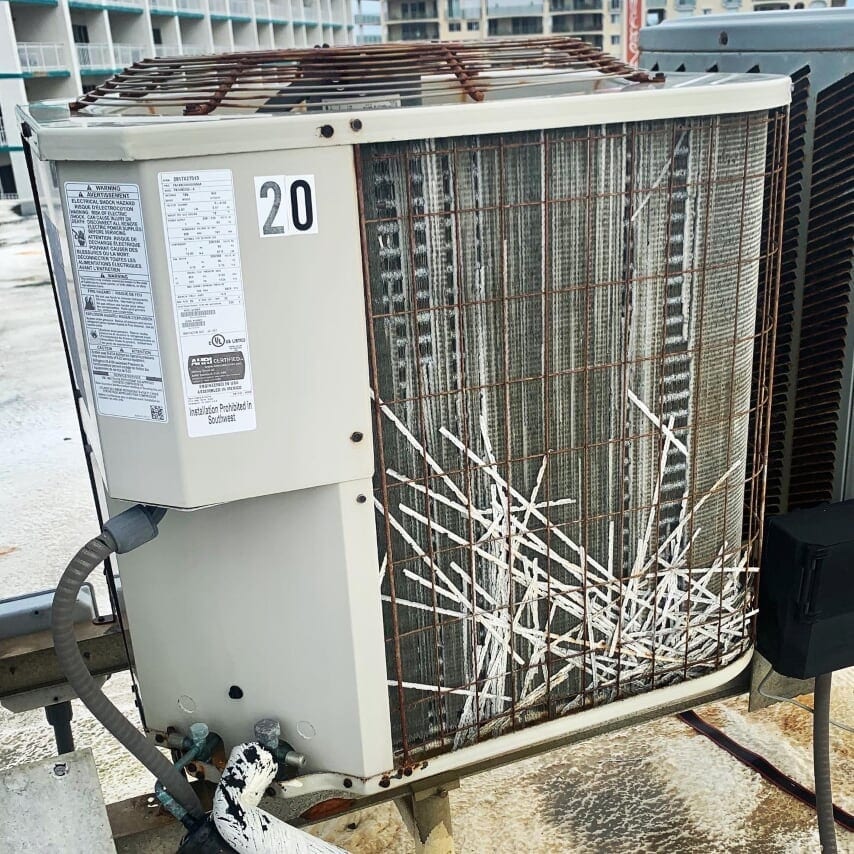
Regular maintenance for your cooling and heating system is awesome, no matter where you live. Along with regular at-home upkeep, maintenance keeps things running smoothly and keeps away big repairs, funky smells, and more.
Having your system serviced means great things for a home. You will help your system run smoothly all year long with the extra care from a professional HVAC company. But you’ll also catch failing or damaged parts before they become major, costly repairs. When you live on the coast, this is especially true.
Yearly and bi-annual air conditioning service is when a professional will clean off the salt accumulating in the nooks and crannies of the system. Metal parts collecting salt from the humid air will start to corrode and falter, leading to expensive repairs and even system replacements. Regular service will give the metal components a fresh start every once in a while.
Location, Location, Location
Proper installation of your AC system will keep the condenser ventilated. The location of your outside condenser unit plays an important role in preventing saltwater damage over the years. An experienced HVAC company will make sure that your AC system installation keeps as much of the salty air away from your system as possible.
Using natural barriers (like sand dunes or hills) and your home, a good installation location will protect your AC system from wind that comes from the direction of the ocean. Other factors unique to your home will be taken into consideration when getting an AC replacement, so make sure that you talk to a reliable AC company who is familiar with the problems of AC systems near the ocean.
Install a Coastal AC System
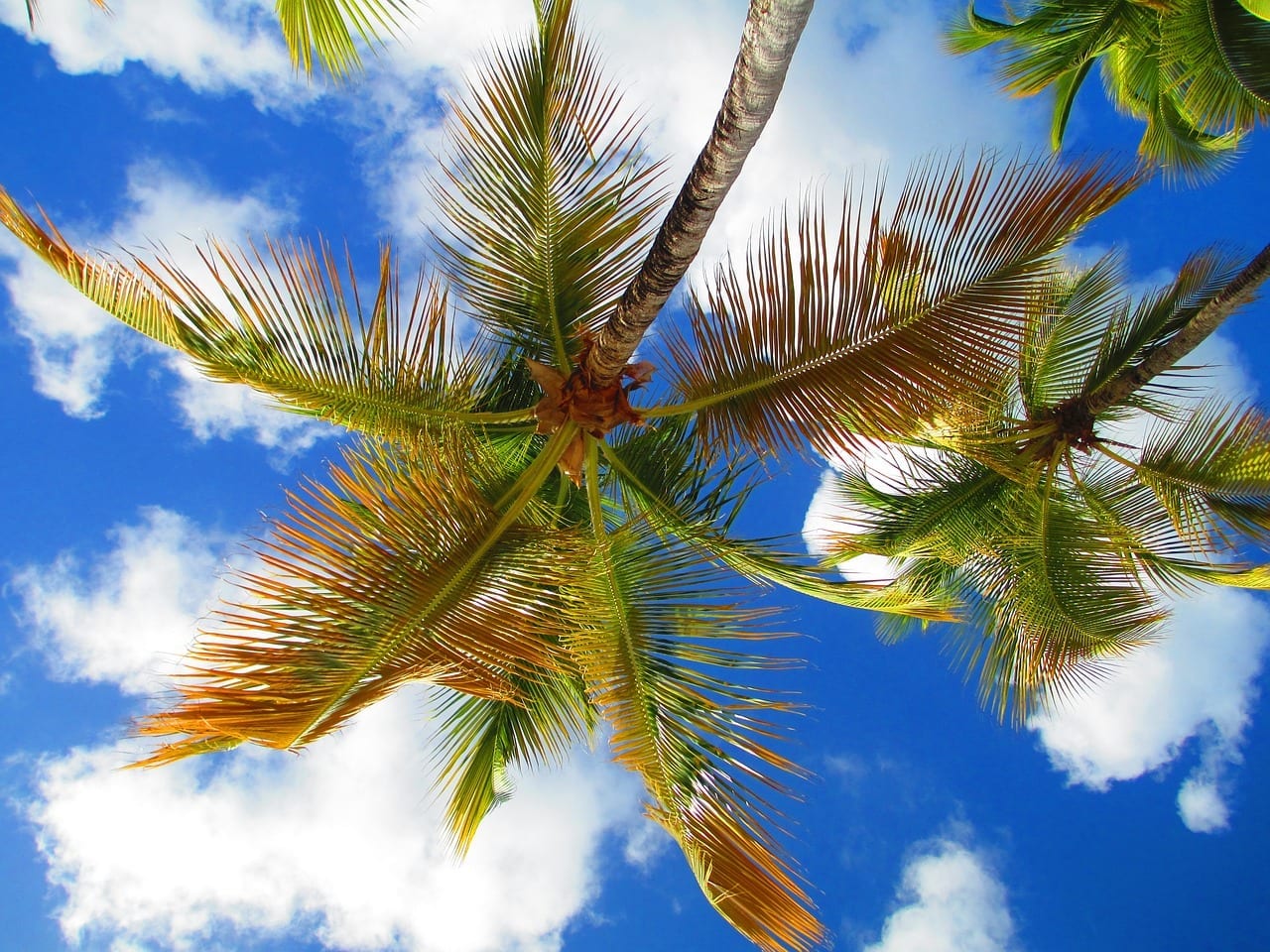
The best choice for keeping your heating and cooling system in tip-top shape? Coastal AC systems. Coastal AC systems are specifically designed to be more robust and better equipped for the outdoor conditions of Florida and other seaside areas.
These systems are built to resist corrosion and the damage that comes from the salt water, humidity, and heat that brutalizes the system every day. Special corrosion-resistant protectants make a major difference in your AC’s lifespan! In addition, many coastal air conditioners are built to withstand the problems of bad weather and debris (hint, hint: hurricanes) so that seasonal changes don’t cause the major repairs that a normal AC system would need.
Talk to a professional HVAC company in your area (like Cool Rays AC) to find out if a coastal AC system might be right for you.



